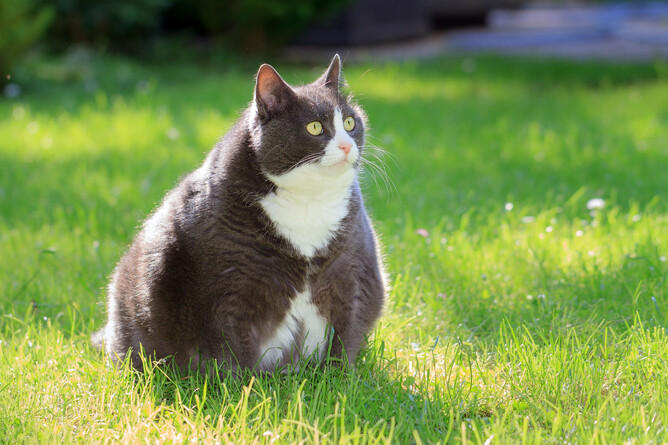Our pets come in all shapes and sizes, but just like in humans, obesity is becoming a growing health concern. Carrying excess weight can lead to a host of serious health problems that can affect your pet’s quality of life, and how long they live.
Joint problems
One of the most common issues associated with obesity in pets is joint problems. The extra weight puts unnecessary stress on their joints. This can lead to the progression of joint degeneration and arthritis, causing significant pain and reduced mobility. By adopting careful weight management however, this can sometimes reduce or even eliminate the need for arthritis medications.
Heart disease
Excess weight can also lead to heart disease. The additional fat can cause the heart to work harder, leading to conditions such as hypertension and congestive heart failure.
Diabetes mellitus
Just like in humans, obesity in pets can lead to insulin resistance. Managing your pet's weight is crucial in reducing the risk of developing diabetes mellitus.
Respiratory compromise
Obese pets often struggle with respiratory issues. The excess fat forms a constricting layer around the chest, making it difficult for them to take deep breaths.This can lead to chronic coughing, tracheal collapse, and an increased risk of overheating.
Hepatic lipidosis (fatty liver disease)
In cats, obesity can lead to a severe condition known as hepatic lipidosis. When an overweight cat stops eating, the body mobilizes fat to provide energy. Unfortunately, a cat's liver is not designed to process large amounts of fat, leading to liver failure.
Reduced life span
Obesity can significantly shorten a pet's life span. Studies have shown that dogs kept at a healthy weight live, on average, 2.5 years longer than their overweight counterparts. This reduction in life expectancy is due to the various health complications associated with obesity.
Preventing obesity in our pets
Thankfully, obesity is something we can prevent in our pets. It starts with the basics.
A balanced diet – Feed a nutritious diet that’s appropriate for your pet’s age, breed, and activity level.
Regular exercise – Daily walks, playtime and enrichment activities using interactive toys keep pets physically and mentally active.
Routine check ups – Your vet can help track your pet’s weight and guide you with personalised advice.
By taking these simple steps, you can help your furry friend live a longer, healthier, and happier life.

